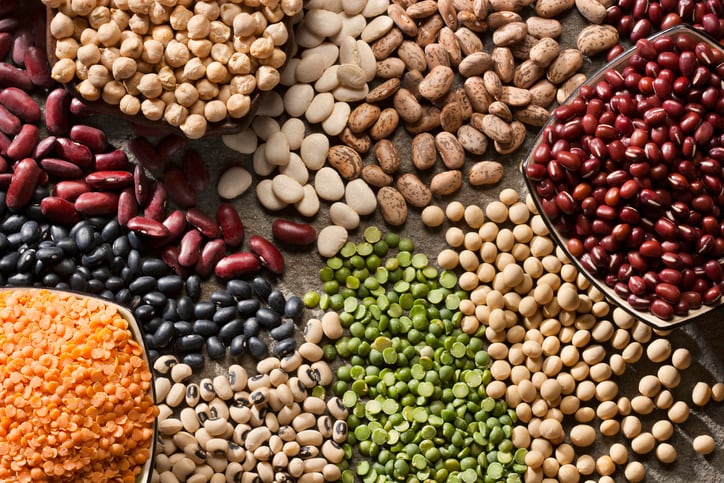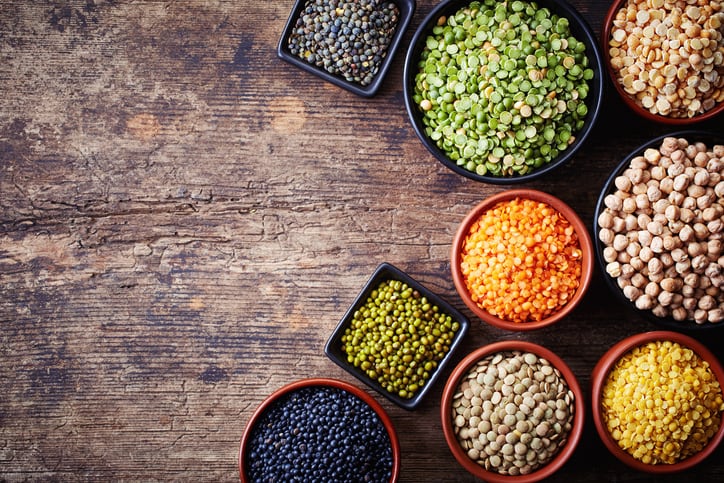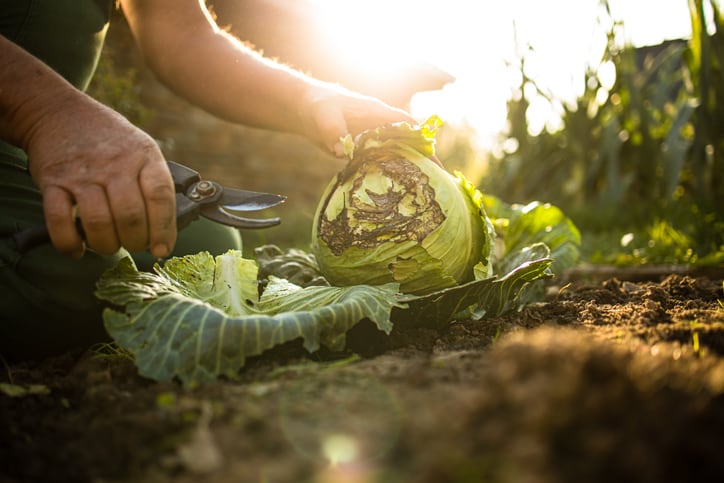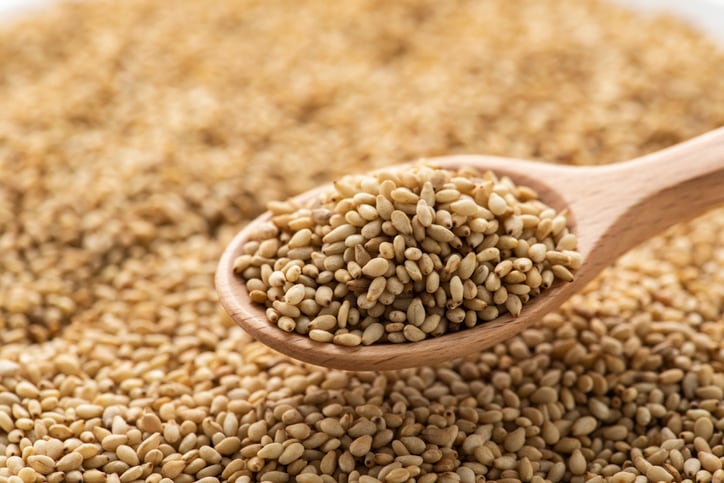Specifically, what proteins and technologies are needed to make new products appeal to flexitarian consumers who say they want to cut their meat consumption for environmental, health and ethical reasons. These newer consumers don’t compromise on flavour, texture and appearance of these products. Many plant proteins at the moment, meanwhile, lack true environmental and nutrition credentials. The challenge to producers therefore is to make next generation plant-based products with better taste, texture, nutritional and environmental qualities – all at an equal price point with meat – in order to win over these newer cohorts of meat alternatives eaters.
A recent EIT Food report, looking at trust levels of 20,000 European consumers, revealed that people were generally positive about innovation of plant-based food, but they were concerned about “over-production, additives, GMO/OGM and loss of authenticity”.
EIT Food’s RisingFoodStars programme is designed to spot and nurture those young brands deemed able to ‘fix our current food system’, making it more ‘sustainable, healthy and trusted’.
“These companies receive funding and support to allow them to scale and get to market,” explained EIT Food Director of Innovation Paola Giavedoni. EIT Food is eyeing the 'risk takers' and 'pioneers' looking to disrupt and innovate, she said. “Our role is to create the little seeds and allow them to grow. You need to disrupt to innovate.”
There are 55 start-ups among the current crop, with 12 in the alternative protein space. The most recently added include Israeli start-up InnovaPro, which makes chickpea concentrate that food manufacturers can use to produce, among other things, egg-free mayonnaise, vegan ice cream and veggie burgers. InnovoPro has developed a patented technology that allows it to extract 70% protein concentrate from chickpeas, which can be used in a variety of applications as an emulsifier and foaming agent that can replace eggs, oil and gluten without compromising taste or texture. The protein has a clean taste, which means manufacturers can create products with clean labels, thus helping to offer a potential solution to long ingredients lists in plant-based products.
What will take on the ubiquitous soy and pea?
As well as chickpea, other plant proteins have come to the table looking to displace soy and pea and boasting potentially positive environmental and health footprints. EIT Food is championing Icelandic company Vaxa, which has developed a disruptive new technology platform to grow micro-algae. "Algea is a very promising sector,” said Giavedoni.
Vaxa claims its patented, indoor, controlled and optimized process requires less than 1% of the fresh water and 1% of the land compared to a conventional omega-3 production facility. It is also carbon negative.
"Microalgae is rich in omega 3 so they can fortify products with this ingredient,” continued Giavedoni. “The microalgae can also deliver a blue colour through the protein produced by the algae, which is one of the most difficult colourants for the food industry. So in this case it would be a very natural source of blue colour. This technology is absolutely climate friendly, and highly sustainable as a technology."
Fermentation and 3D technology
Fermentation is another sustainable technology on the EIT Food radar. One company utilising it is UK company ENOUGH, which produces a mycoprotein (which it calls Abunda), made by fermenting fungi with the natural sugars from grains. “This fungi-based protein has a meaty texture and is naturally fortified with B12 which is one of the vitamins most needed for vegans and vegetarians and is also rich in zinc and iron,” revealed Giavedoni. “It’s a highly versatile mycoprotein that can be incorporated in different plant-based food products.” No wonder ENOUGH last year announced a partnership with Unilever to assist the FMCG giant towards its annual global sales target of €1 billion from plant-based meat and dairy alternatives by 2025-2027.
3D printing is more technology that may prove a sustainable solution. Another EIT Food cohort is Israeli start-up Redefine Meat, which makes plant-based meat alternatives using 3D printing and which is preparing to launch in Europe after announcing a $29m fundraise at the start of the year.
In July 2019, Redefine Meat unveiled the world’s first plant-based steak produced using industrial digital manufacturing of plant-based ingredients. Created using the company’s novel and patented technology, Redefine Meat aims to produce vegetable-based food with the texture, flavour and appearance of beef. The company says this can be produced in the volume and cost required for large-scale commercial markets.
Giavedoni said this type of technology may hold the key to improving the health and sustainability credentials of beef -- an industry regularly under fire for its climate impacts.
Reducing plant food anti-nutritional factors
On top of its RisingFoodStars accelerator programme, EIT Food is also partnering with food companies and academics to work on various innovation projects, which again highlight those challenges the plant-based sector is looking to overcome. For example, the ‘Our Nutritious Protein’ scheme, in conjunction with Nestle Research, DSM Group, Roquette and the University of Reading in the UK, aims to bring to market a minimally processed plant-based beverage.
Giavedoni explained that to date, minimally processed plant proteins are hampered as alternatives to animal proteins due to the presence of antinutritional factors (ANFs), which decrease their nutritional value.
This project is looking to use enzyme technology to reduce the ANFs in minimally processed plant proteins, thus boosting the nutritional quality and sensory characteristics of the drink. In addition, reduction of ANFs using enzymes will allow valorization of side streams from plant material processing for increased sustainability of these crops.
Making use of underutilised plant sources
Another plan -- called TASTE2MEAT – and in partnership with the University of Helsinki, DIL (The German Institute of Food Technologies) and APP Food Group, aims to identify and assess new alternative protein ingredients from underutilised plant sources, such as legumes and oilseed press-cakes.
A similar project -- called Favuleux – aims to boost fava bean production in Europe. The fava bean grain is well adapted to Northern Europe and is relatively cheap to grow. Two million tonnes are currently produced in the EU, particularly in the UK and Northern France. However, it is mainly grown for animal feed, and the crop remains under-utilised as a food ingredient owing to, among other things, poor yields for farmers, beany off-notes and a potentially fatal genetic disorder.
The project will develop a fava bean production pipeline, which will include both supply chain modelling and assessment of economic viability. A sustainability assessment framework will include parameters such as farm economic costing, lifecycle approach to sustainability impacts, food miles, energy accounting in product lifecycle, and ecological footprint. “It’s important to have products available at regional level so as not to import them from China or Canada,” added Giavedoni.





